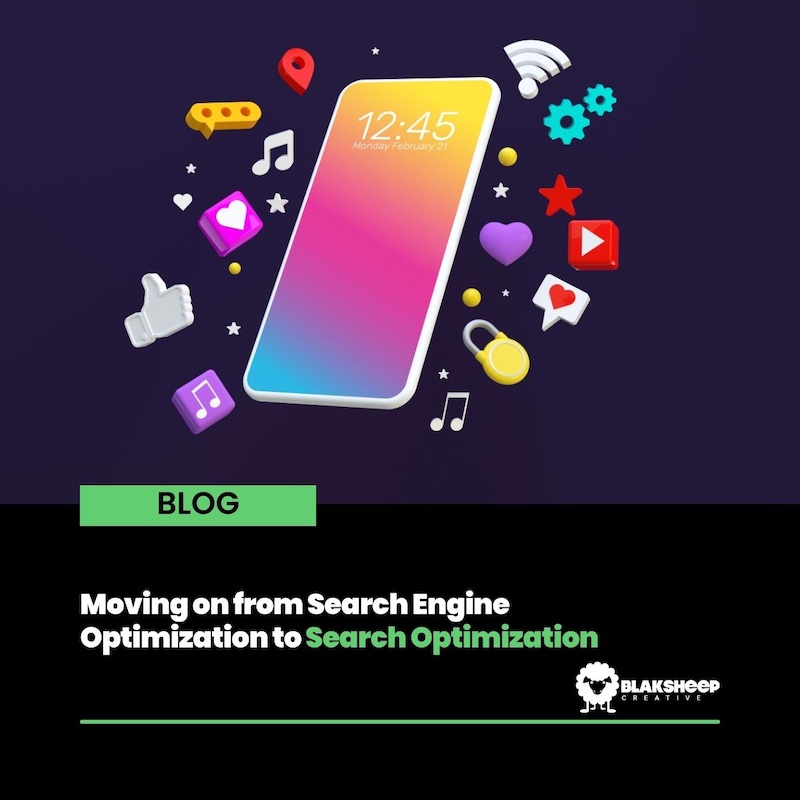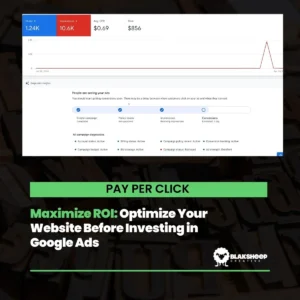Beyond Google: The reality of today’s search landscape
In the early 2000s, web search was mainly limited to search engines and online directories, but the landscape has changed.
SEO professionals need to think beyond Google and search engines and focus on overall search presence to improve clients’ visibility on various platforms, including social media, where a significant share of web searches happen.
This blog post will discuss why brands need to go beyond traditional search engine optimization (SEO) and focus on a more holistic approach—search optimization—that includes social media platforms, online directories, and other sources of web traffic.
Social Search: What it is and Why it Matters
What is Social Search?
Social search refers to the ability to search for information or content on social media platforms like Twitter, Instagram, LinkedIn, and others. This allows users to find relevant content, users, and conversations based on keywords, hashtags, location, and other parameters.
The results of a social search can be tailored to individual user preferences and can differ from traditional search engines. According to Gartner, social search allows users to disambiguate search results effectively.
Why Social Search Matters for Brands
Showing up in social media search results is becoming increasingly crucial for brands. Here are 12 reasons why:
- Investment in Search Functionality: Social media platforms are investing significant budgets in improving their search functionality, which will likely result in enhanced social search results over time.
- Increased Social Media Usage: As more people spend time on social media than search engines, social search use is on the rise.
- Gen Z’s Social Media Habits: In the US, Gen Z users spend approximately 5 hours weekly on Instagram.
- Refined Results: Social search results often have filters such as hashtags, services, companies, jobs, events, and people, making results more refined and targeted.
- Local Business Discoverability: Social platforms also focus on making local businesses more discoverable through social search.
- Reflecting Word of Mouth: Social media search results show user interactions and reflect word of mouth through comments, likes, shares, follows, and conversations.
- Trust in User Opinions: Studies show that people trust the opinions of other users (such as clients, customers, and suppliers) more than what is displayed on business websites.
- Relevance and Engagement: Unlike search engine results that focus on optimized web pages, social search focuses on relevancy and engagement.
- Less Spam: Since social media search results are derived from the posts and interactions of social media users, there is less spam in the results compared to typical search engine results.
- Increased Value of Quality Content: Quality content becomes more valuable when users discuss products, services, and brands on social media, and these conversations appear in social media search results.
- Providing Influence: While search engine results generally provide information, social search results have the potential to be influential.
- Ease of Adoption: People of all ages can quickly adapt to new trends in social media, but adapting to advanced search engine techniques can be more challenging.
Searching on Social Media Platforms
Searching on social media platforms is essential to any digital marketing strategy. To get a better idea of what each platform offers, let’s explore the search features of some of the most popular social media platforms.
Twitter is a fast-paced microblogging platform that allows users to find tweets from various sources, including themselves, friends, local businesses, well-known entertainers, and global political leaders. Searching on Twitter is easy, with the ability to search using search queries or hashtags. You can also follow ongoing conversations about news, products, services, or other personal interests.
Twitter search results are different for logged-in and logged-out users, and the platform offers an advanced search option. This advanced search allows you to get customized search results for specific date ranges, people, and more, making it easier to find particular tweets.
LinkedIn is the world’s largest professional network on the web, focusing on professional interactions and knowledge-sharing. The platform is used by people from various professional backgrounds, including small business owners, students, and job seekers. LinkedIn members can use the platform to tap into a network of professionals, companies, and groups within and beyond their industry.
LinkedIn search has excellent filters to help narrow your search for more relevant results, including people, companies, jobs, posts, groups, events, courses, schools, and services. Job seekers and recruiters widely use the platform, and HR professionals use it for headhunting and background checks on applicants.
From a search perspective, people use LinkedIn for professional development and seeking job opportunities, so being found in the search results on LinkedIn is crucial.
Instagram is a rapidly growing platform with over 1.21 billion monthly active users, making up over 28% of the world’s internet users. By 2025, its user base is expected to grow to 1.44 billion, accounting for 31.2% of global internet users.
Sharing creative content regularly and using the correct hashtags can increase the chances of your profile appearing in Instagram search results. Instagram content is usually in the form of images, videos, live conversations, reels, and stories, and the platform also features a shopping feature.
Interactions on Instagram are measured in likes, shares, and follows, making it an excellent platform for businesses in retail, fashion, food, baby products, and grooming industries.
YouTube
YouTube is a video-sharing platform where prospective buyers can discover your brand. Optimizing for YouTube search is similar to optimizing a website, with relevance, engagement, and quality being the three main elements that prioritize search results.
Your video title and description must be relevant to match the user’s search query. You can also create videos that answer frequently asked questions customers may have after buying your product or service, making it an excellent platform for sales and after-sales.
In conclusion, understanding the search features of these popular social media platforms is an essential part of any digital marketing strategy. Whether you’re looking to tap into professional networks, increase brand visibility, or drive sales, each platform offers unique search capabilities to help you achieve your goals.
The Future: Search Optimization (not just Search Engine Optimization)
The future of search lies in optimization, not just in search engine optimization. Brands must prioritize their social media presence as social media platforms constantly invest in improving their search functionality.
The shift from traditional SEO to a more comprehensive approach like Answer Engine Optimization (AEO) could be the key to staying ahead in the digital world. Learn more about how AEO is redefining search here.
With more and more users spending time on social media rather than search engines, it’s crucial to understand and leverage the search features on these platforms.
Frequently Asked Questions
Here are some frequently asked questions about search optimization on social media platforms:
What is Social Search?
Social search refers to the ability to search for information or content on social media platforms like Twitter, Instagram, LinkedIn, and others. This allows users to find relevant content, users, and conversations based on keywords, hashtags, location, and other parameters. The results of a social search can be tailored to individual user preferences and can differ from traditional search engines.
How can I optimize my content for the various platforms?
Content is the key to success in digital marketing, and optimizing it for each platform is essential. Consider your target audience, research keywords relevant to your product or service, create high-quality content tailored to the platform, and structure it properly.
How can I improve my visibility in social search results?
Leverage hashtags to extend the reach of your content, use your profile information for further optimization, be active on the platform (commenting, liking, sharing), create compelling visuals and videos, and feature user-generated content where possible.
What platforms are best for search optimization?
LinkedIn, Instagram, and YouTube offer excellent opportunities to optimize your presence in search results. Many other social media platforms are available, so it’s important to understand which platform is right for you and tailor your content accordingly.
Get Your Free Consultation



